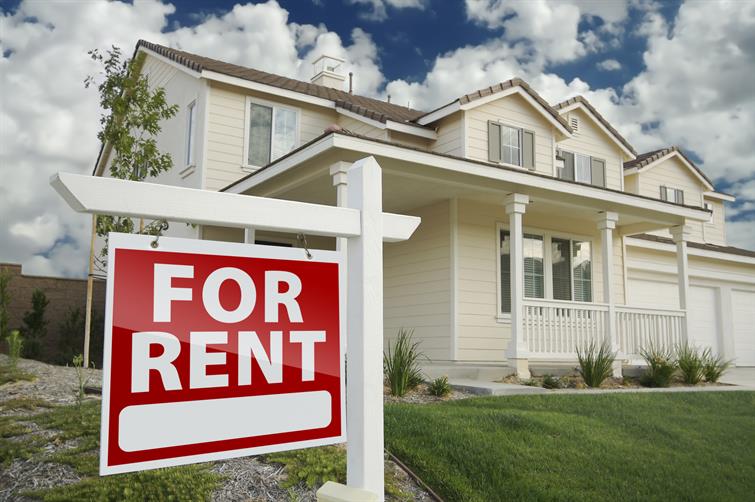From Rent to Own: A Step-by-Step Guide to Mortgages for Renters

For many renters, the prospect of owning a home can feel like a distant dream. However, with the right guidance and understanding of the mortgage process, that dream can become a reality. In this comprehensive guide, we’ll walk you through everything you need to know about transitioning from renting to owning, including key steps, considerations, and FAQs.
Understanding Mortgages

Navigating the world of mortgages can seem daunting, but it’s essential to understand the basics before diving in.
Renters often wonder: What exactly is a mortgage, and how does it differ from renting?
A mortgage is a type of loan used to purchase a home. Unlike renting, where you pay a landlord for temporary housing, a mortgage allows you to gradually pay off the cost of your home over time, eventually owning it outright.
Assessing Your Financial Situation

Before embarking on the journey from renting to owning, it’s crucial to assess your financial readiness.
Potential buyers often ask: How do I know if I’m financially ready to buy a home?
Assessing your financial situation involves evaluating your income, debt, savings, and credit score. Lenders will look at these factors to determine your eligibility for a mortgage and the terms you qualify for.
Savings for a Down Payment

One of the biggest hurdles for renters transitioning to homeownership is saving for a down payment.
You might be wondering: How much do I need for a down payment?
The amount required for a down payment varies depending on the type of mortgage and the lender’s requirements. However, aim to save at least 20% of the home’s purchase price to avoid private mortgage insurance (PMI) and secure better loan terms.
Exploring Mortgage Options

Once you’ve saved for a down payment and assessed your finances, it’s time to explore mortgage options.
You may ask: What types of mortgages are available to renters?
There are various types of mortgages available, including fixed-rate mortgages, adjustable-rate mortgages (ARMs), FHA loans, VA loans, and USDA loans. Each has its own eligibility criteria, benefits, and drawbacks, so it’s essential to research and compare them carefully.
Getting Pre-Approved for a Mortgage

Before beginning your home search, it’s advisable to get pre-approved for a mortgage.
You might wonder: What does it mean to be pre-approved for a mortgage?
Getting pre-approved involves submitting a mortgage application and providing documentation of your income, assets, and debts to a lender. Once pre-approved, you’ll receive a conditional commitment for a specific loan amount, which strengthens your position as a serious buyer.
Searching for the Right Home

With your finances in order and pre-approval in hand, it’s time to start searching for your dream home.
Renters often ask: What should I consider when searching for a home?
When searching for a home, consider factors such as location, size, amenities, school districts, and resale value. Make a list of your must-haves and nice-to-haves to narrow down your options effectively.
Making an Offer and Negotiating

Once you’ve found the perfect home, it’s time to make an offer.
You might be wondering: How do I make a competitive offer?
Your real estate agent can help you draft a compelling offer that considers factors such as the home’s market value, comparable sales, and seller’s motivations. Be prepared to negotiate terms such as price, contingencies, and closing costs to reach a mutually beneficial agreement.
Completing the Mortgage Application Process

After your offer is accepted, you’ll enter the mortgage application process.
Potential buyers often ask: What documents do I need to apply for a mortgage?
To complete the mortgage application, you’ll need to provide documentation such as pay stubs, tax returns, bank statements, and proof of identification. Be prepared to respond promptly to any requests from your lender to ensure a smooth approval process.
Undergoing Home Inspection and Appraisal

As part of the homebuying process, you’ll typically undergo a home inspection and appraisal.
You may wonder: What is the purpose of a home inspection and appraisal?
A home inspection assesses the condition of the property and identifies any potential issues or safety concerns. An appraisal determines the fair market value of the home to ensure the lender isn’t financing more than the property is worth.
Closing in on Your New Home

Finally, after all the necessary steps have been completed, it’s time to close on your new home.
You might ask: What happens during the closing process?
During the closing process, you’ll sign various documents, pay closing costs, and receive the keys to your new home. It’s an exciting milestone that marks the culmination of your journey from renting to owning.
FAQs
Renting to own offers several benefits, including the opportunity to build equity, customize your living space, and enjoy the stability of homeownership.
While having bad credit can make it more challenging to qualify for a mortgage, there are options available, such as FHA loans, that cater to buyers with less-than-perfect credit.
The homebuying process can vary in length depending on factors such as market conditions, financing complexity, and the availability of suitable properties. On average, it takes between 30 and 45 days to close on a home after an offer is accepted.
While a 20% down payment is ideal, many lenders offer programs that allow for lower down payments, such as FHA loans with down payments as low as $3.5%.
If your mortgage application is denied, take steps to improve your credit, reduce debt, and save for a larger down payment before reapplying. You may also consider seeking assistance from a housing counselor or exploring alternative financing options.
Closing costs include fees associated with the homebuying process, including loan origination fees, title insurance, and escrow fees. On average, closing costs range from 2% to 5% of the home’s purchase price.
Conclusion
Transitioning from renting to owning can be a rewarding journey with the right knowledge and preparation. By following this step-by-step guide to mortgages for renters, you’ll be well-equipped to navigate the homebuying process with confidence and achieve your homeownership dreams.


